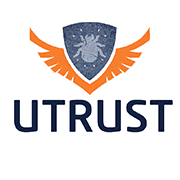Why Outsource QA?
Software testing (QA) is the process of evaluating a software application or system to ensure that it meets quality standards and performs as intended. It is an essential part of the software development lifecycle, ensuring that the software is free of defects and meets customer requirements and expectations.
Software testing involves various activities, including identifying test requirements, designing test cases, executing test cases, and reporting and tracking defects. It also includes different types of testing, such as functional testing, performance testing, security testing, and usability testing.
The main goal of software testing is to identify defects or issues in the software before it is released to the market. This helps to reduce the risk of costly downtime, loss of productivity, or damage to the company’s reputation. It also helps to improve customer satisfaction by ensuring that the software meets their requirements and expectations.
Effective software testing requires a comprehensive understanding of industry standards, best practices, and quality assurance methodologies. It also requires the use of specialized testing tools and technologies to ensure that the software is thoroughly tested and any issues or bugs are identified.
There are several benefits to outsourcing your QA and testing functions to an external service provider:
Save Costs – QA outsourcing helps reduce costs significantly. Maintaining an in-house QA team can be expensive as it requires investments in people, infrastructure, and tools. Outsourcing to an external vendor that specializes in QA helps you save on these overheads and gain from their economies of scale.
Access to Expertise – Outsourced QA providers have significant experience in various domains and technologies. They invest heavily in training and certifying their resources. By outsourcing to them, you gain access to their pool of highly skilled and experienced QA experts.
Increase Efficiency – External QA providers have refined processes and best practices that they apply to all their clients. This helps in increasing the efficiency of QA as they have ready templates, reusable components, and automation frameworks that can be quickly adapted for your needs.
Focus on Core Competencies – By outsourcing QA, your key employees and management can focus on their core product engineering and management roles rather than spending time managing testing. The outsourced partner manages all the day-to-day QA activities.
Faster Execution – Outsourced QA vendors have the scale and bandwidth to execute QA projects faster. They have the ability to ramp up quickly for shorter cycle time projects. They can also run testing in parallel and even offer 24×7 services if required.
Access to Advanced Tools and Infrastructure – Reputed QA companies invest heavily in new technologies and tools for functional and non-functional testing. By outsourcing to them, you gain access to these cutting-edge tools and environments without having to invest in them yourself.
Gain an Independent Assessment – An external QA provider can give you an independent expert assessment of the quality and user experience of your product. They can identify issues and risks that may be missed by in-house teams. Such objective feedback is invaluable for improved quality.
In summary, outsourcing QA has significant benefits in terms of reduced costs, improved expertise, increased efficiency, faster project execution, access to advanced tools, and gaining an independent expert assessment. For most organizations, outsourcing QA to an external services provider makes both business and technical sense.
Comments are closed.






